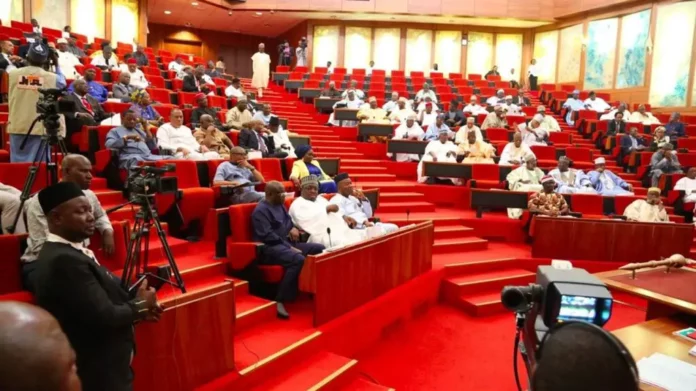By Daniel Edu
The Presidential Committee on Tax Policy and Fiscal Reforms is considering a significant change in the way revenue is collected by the Nigeria Customs Service and 62 other Ministries, Departments, and Agencies (MDAs) of the Federal Government.
According to the committee, the Federal Inland Revenue Service (FIRS) is set to take over the role of revenue collection for these MDAs.
During an appearance on Channels Television’s Sunrise Daily breakfast show, Taiwo Oyedele, the Chairman of the Committee, shared this development. He highlighted that the current system results in a high cost of revenue collection and distracts these agencies from their core functions of contributing to the economy. The move to shift revenue collection to the FIRS is expected to enhance efficiency and enable these agencies to concentrate on their primary tasks.
The committee’s formation was announced by President Bola Tinubu, and its members include Orire Agbaje, a fourth-year Economics student at the University of Ibadan.
Oyedele, a former Fiscal Policy Partner and Africa Tax Leader at PriceWaterhouseCoopers (PwC), emphasized that the primary functions of MDAs are not aligned with revenue collection. He underscored the need for agencies like the Nigerian Customs Service and the Nigerian Communications Commission (NCC) to focus on their core responsibilities, such as trade facilitation and telecommunications regulation, rather than revenue collection.
By shifting revenue collection to the FIRS, the committee aims to increase transparency and accountability in the use of collected funds. Oyedele noted that this change will allow for better tracking of revenue and expenditures, fostering a more responsible financial ecosystem.
Addressing Nigeria’s tax gap, Oyedele pointed out that there is a substantial discrepancy in the amount of taxes owed and the amount collected. The gap is estimated to be around 20 trillion naira or more. He highlighted that many individuals, particularly in the middle class and elite categories, do not comply with tax obligations. This non-compliance contributes to a significant loss of potential revenue for the government.
To address this issue, the committee proposes focusing on major taxes, including Value Added Tax, Corporate Income Tax, and Personal Income Tax, and improving tax compliance among citizens, especially those who are not fully participating in the tax system.

